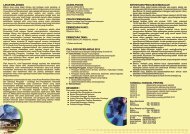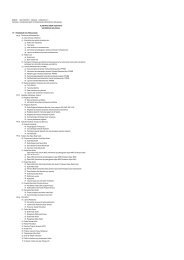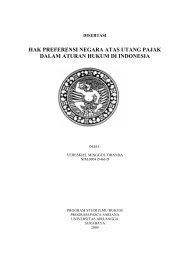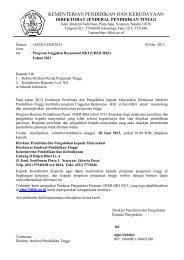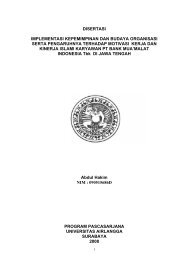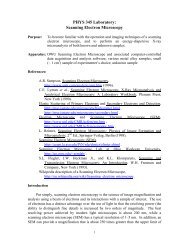Nietzsche's Naturalistic Ethics - UNAIR | E-Book Collection
Nietzsche's Naturalistic Ethics - UNAIR | E-Book Collection
Nietzsche's Naturalistic Ethics - UNAIR | E-Book Collection
You also want an ePaper? Increase the reach of your titles
YUMPU automatically turns print PDFs into web optimized ePapers that Google loves.
penultimate section of Ecce Homo (the last merely containing the infamous reference to “Dionysusvs. the Crucified”) captures this concern, insisting that notions such as “soul,” “spirit,” and inparticular “immortal soul” were invented to treat the serious questions of life with carelessness,namely, “questions about nutrition, shelter, mental diet, treatment of the sick, cleanliness, [and]weather.” The section Why I am So Clever abounds in comments on those matters. Similarly, theTwilight praises the Greeks for having started culture at the right place, “not in the ‘soul’ (as wasthe fatal superstition of priests and half-priests): the right place is the body, gesture, diet, physiology,the rest follows” (Skirmishes, 47). And when in the Antichrist Nietzsche sums up against whatChristianity has conspired, he first mentions health (A 62). Such remarks are signposts of the viewthat greater attention should be paid to matters of biology, in particular physiology, and psychologyin areas traditionally reserved for philosophical a priori investigation. That view, I think, is one ofNietzsche’s most distinct but also least understood and discussed messages. In particular,physiology is much more important to Nietzsche’s mature views on ethics than is commonlyacknowledged, notably in existentialist readings and readings championing Nietzsche as philosopherof self-creation. 2My goal is to illuminate Nietzsche’s approach to ethics with that idea in mind, both hiscritique of Christianity (and what he thought were derivative theories, such as Kantian ethics andutilitarianism) and his reasons for exempting certain moral codes from his critique and forchampioning a certain ideal of personhood. Nietzsche’s ethics approached in this way may aptly becalled “naturalistic.” There is no need to discuss the notion of naturalism in general since showing2 Nietzsche, of course, is also the philosopher of self-creation. Nevertheless, his approachto ethics and agency is both naturalistic and fatalistic. In this study, we will neglect the questionof how to combine those two sides of Nietzsche’s work; but cf. Leiter (1998) and Risse (2003).2




